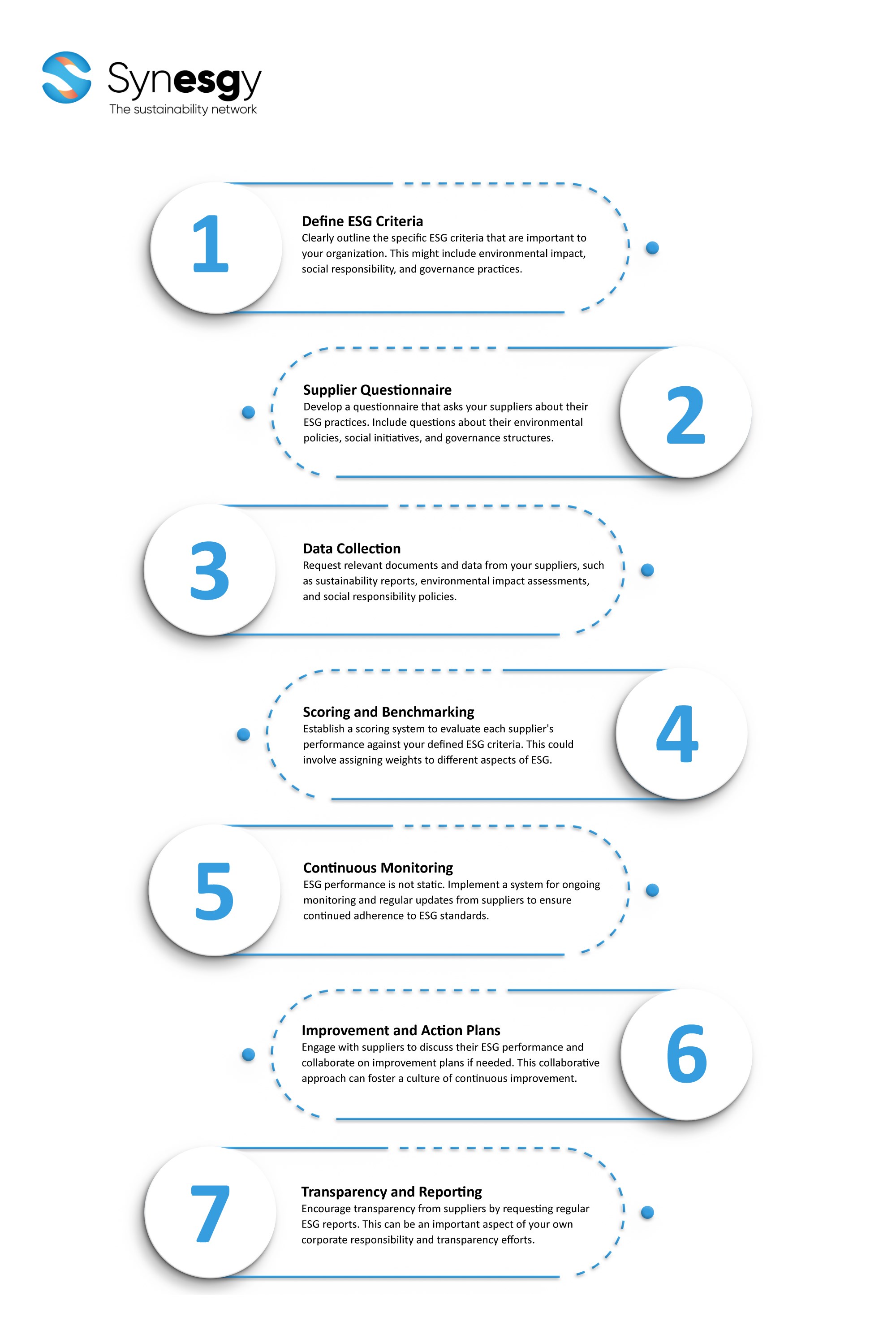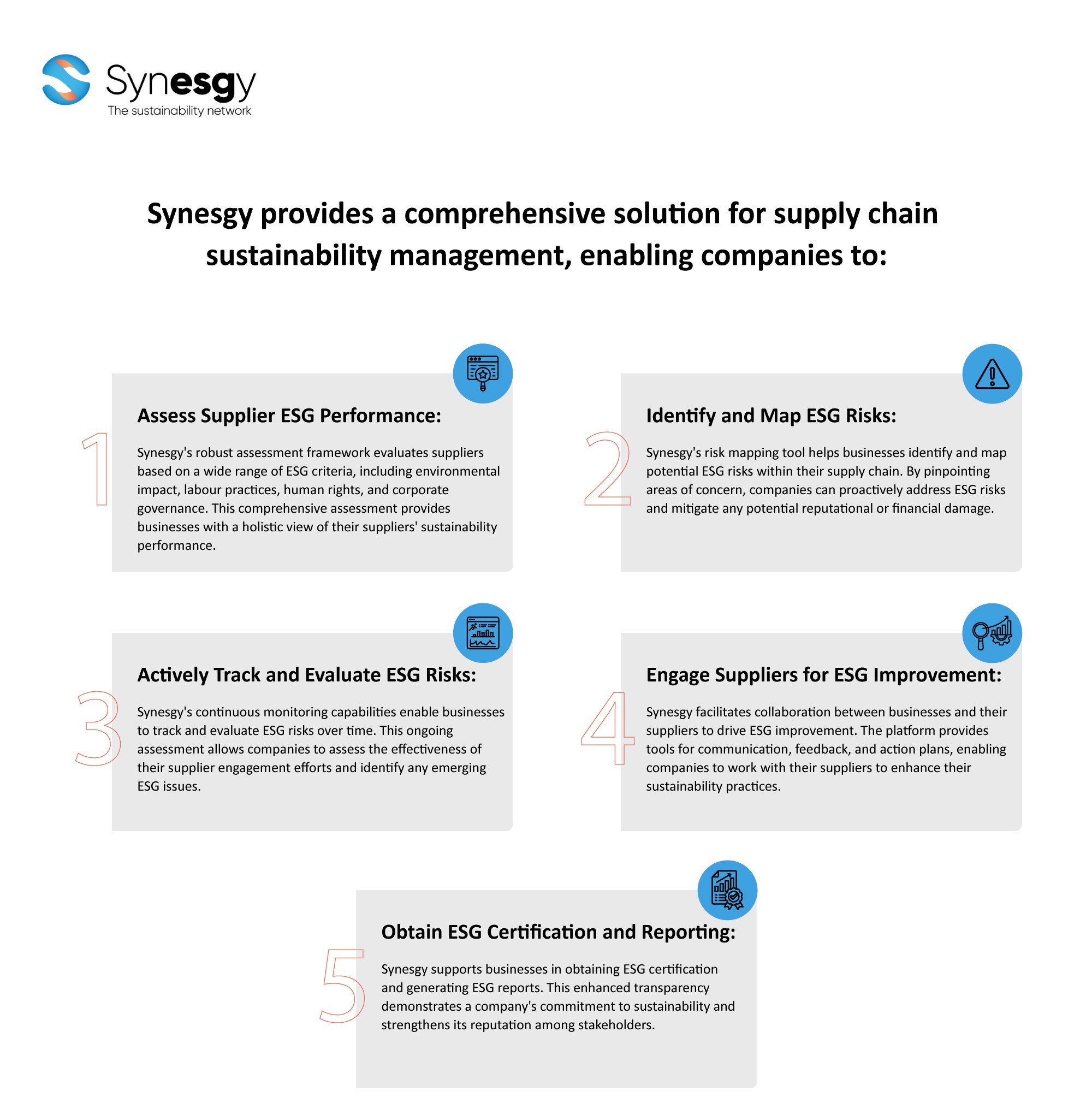Supply chain management is a complex domain subject to various standards, regulations, and strategies. These include working with companies within unregulated markets, hazardous working conditions for employees, low-quality products, corruption, etc. Embedding the ESG framework is an optimal way to identify and reduce risks faced by companies in the supply chain. Conducting an ESG supply chain assessment helps ensure that suppliers meet environmental, social, and governance standards, thereby isiminimising risks.
What are the ESG Criteria for Suppliers?
Common sustainability indicators in terms of the environment are CO2 and other emissions, waste output, energy consumption (such as the quantity of water and electricity used in offices and manufacturing units), and the share of renewable energy sources in total consumption.
Metrics like employee satisfaction and well-being, safety incident reporting, and workforce diversity can be used to gauge social sustainability.
Now imagine if the supplier does not comply with ESG criteria,in that case, companies may end the contract and look for another supplier that follows the ESG guidelines.
Being ESG compliant can help you attract investors who care about sustainability, improve your company's image, and stay competitive by meeting regulations and customer demands for environmentally friendly practices.
Supplier Evaluation Guide
Beyond compliance, companies embracing robust ESG practices benefit from improved risk management, enhanced brand reputation, and increased investor and consumer trust.
Whether you're a procurement expert or a business leader, assessing suppliers is crucial to nurturing enduring and efficient supplier collaborations. Here are the steps to conduct a supplier ESG assessment to choose the right sustainable partner for your business:
These steps can help you assess and mitigate ESG risks throughout the supplier sourcing process, creating a more sustainable and responsible supply chain for your business.
How Synesgy can Help with ESG Assessment?
CRIF Synesgy is an ESG assessment and reporting platform that helps companies evaluate and manage the sustainability performance of their suppliers through an ESG assessment. The platform is based on a comprehensive ESG framework that covers environmental, social, and governance factors.

